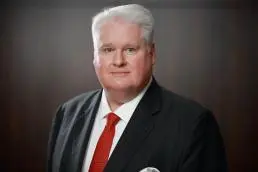PHOTO
The accountancy profession in Saudi Arabia must evolve to support the Kingdom’s efforts in diversifying its economy and achieving the ambitious goals of Vision 2030. This was the consensus during Saudi Arabia’s fourth accounting and auditing conference, which was organised by the Saudi Organization for Certified Public Accountants (SOCPA) and ICAEW.
Business, finance and government leaders from across the region and the world gathered at Al Faisaliah Hotel in Riyadh to understand the role that accountancy can play in the success of Saudi Arabia Vision 2030. Held under the patronage of H.E. Dr Majid Bin Abdullah Al Kassabi, Minister of Commerce and Investment, the one-day conference was themed 'Building trust: Shaping the accountancy profession’s contribution to Vision 2030'.
The speakers agreed that Vision 2030 requires the contribution of accountants and finance professionals in order to build trust and attract foreign investors. This includes improving transparency, responsibility and strategy.
“The accountancy profession in Saudi Arabia has an important role to play in achieving Vision 2030. As the Kingdom progresses, SOCPA can help in getting that economic narrative right by going beyond things like financial reporting, financial accounting, tax, and make a contribution to how the Kingdom looks at achieving some of their goals,” said Michael Izza, Chief Executive, ICAEW.
Speakers explained that more skilled Saudis are required in the accountancy and finance profession. In order to achieve this, Saudi youth should consider joining the private sector. Additionally, university curriculums should include professional workplace training to allow graduates to gain the important skills needed in today’s business world.
Michael Armstrong, FCA and ICAEW Regional Director for the Middle East, Africa and South Asia (MEASA), said: “A robust financial sector is critical to build a strong economy and this has to be supported by top local talent. With national GDP forecast to grow, accountancy and finance professionals will continue to be in high demand. Unfortunately, at the moment not enough Saudis are choosing this career path. This will have to change if the Kingdom is to see real, sustainable, growth.”
Speakers applauded the transparency and flexibility in the new Corporate Law and clarified that this would create an attractive environment for investment. The new law strengthens the voice of minority shareholders, and comprises a clear corporate governance framework. This includes the rule stating that the senior management cannot have two different positions.
Speakers agreed that it is an exciting time to be in the Kingdom. The private sector can act as a catalyst and accelerator for the economy. There will more use of privatization methods rather than traditional State-led methods. There are enormous opportunities for the private sector, particularly in construction, social housing, healthcare, infrastructure, education, consultation, tourism, hospitality, entertainment and IT.
Speakers agreed that IFRS would bring transparency, improve accountability and will help businesses to operate more efficiently. It will also attract international investors as there will be a high standard of international reports that they can trust and rely upon.
Hans Hoogervorst, Chairman, International Accounting Standards Board (IASB), said: “A sound regulatory framework is important for Saudi Arabia to achieve its Vision 2030. The adoption of IFRS Standards is a key element in that framework and a clear signal to the world that the Kingdom welcomes foreign direct investment.”
Speakers clarified that the introduction of VAT in 2018 is critical for Saudi Arabia in order to enhance the government’s non-oil revenues. But to achieve successful implementation there should be a clear and comprehensive tax strategy. As a new framework for the region, there needs to be greater awareness and communications about VAT, and this should be implemented in stages.
Speakers included Michael Izza, Chief Executive, ICAEW; Vernon Soare, Chief Operating Officer, ICAEW; Hans Hoogervorst, Chairman, International Accounting Standards Board (IASB); Ahmadi Hadibroto, Board Member, International Federation of Accountants (IFAC); Dr Abdulrahman Al Humaid, Chairman, Al Bilad Bank and Trustee, IFRS Foundation; Dr Ahmad Almeghames, Secretary General, SOCPA; Nadeem Yousuf Adil, President, The Institute of Chartered Accountants Pakistan (ICAP); Abdulkarim Al Nujaidi, Director General, Human Resource Development Fund; Dr Syed Salman Shah, Former Finance Minister, Government of Pakistan; Abdulaziz Alfuraih, Vice Governor, Saudi Arabian Monetary Authority (SAMA); Osama Abdul Latif, CEO, YANSAB; Walid Abukhaled, CEO Middle East, Northrop Grumman Corporation; Esraa Albuti, Manager, International and Transaction Tax Services, EY; Hatem Samman, Chief Economist and Economic Advisor, Saudi Arabian General Investment Authority (SAGIA); David Lloyd, Principal , EY; Gavin Steel, Partner Capital Markets and Advisory Services, PwC; Wael Fattouh, Middle East Partner, PwC; Bassam Mohammad Albaqawi, Senior Partner, Bassam Mohammed Albaqawi & Partners; Ehsan Makhdoum, Partner, Deloitte; Dr Saad Al Mosa, Dean of the College of Business Administration, Prince Sultan University; Asher Noor, CFO, Al Touq Group; Asad Zain, VP Finance, Olayan Financing Company; Khalid Al Garni, Vice President Finance, SABIC; Dr Nigel Sleigh-Johnson, Head of Financial Reporting Faculty, ICAEW; Alhaitham A. Al-Ghothami, Economic Advisor, General Authority of Zakat and Tax; Rupert Pease, Head of Tax, Middle East and South Asia, KPMG; Gihad Al-Amri, Partner, BDO KSA; and Mohammed Al Obailan, Chairman of the Accounting and Auditing Organisation for the Gulf Cooperation Council (GCC).
© Press Release 2017




















